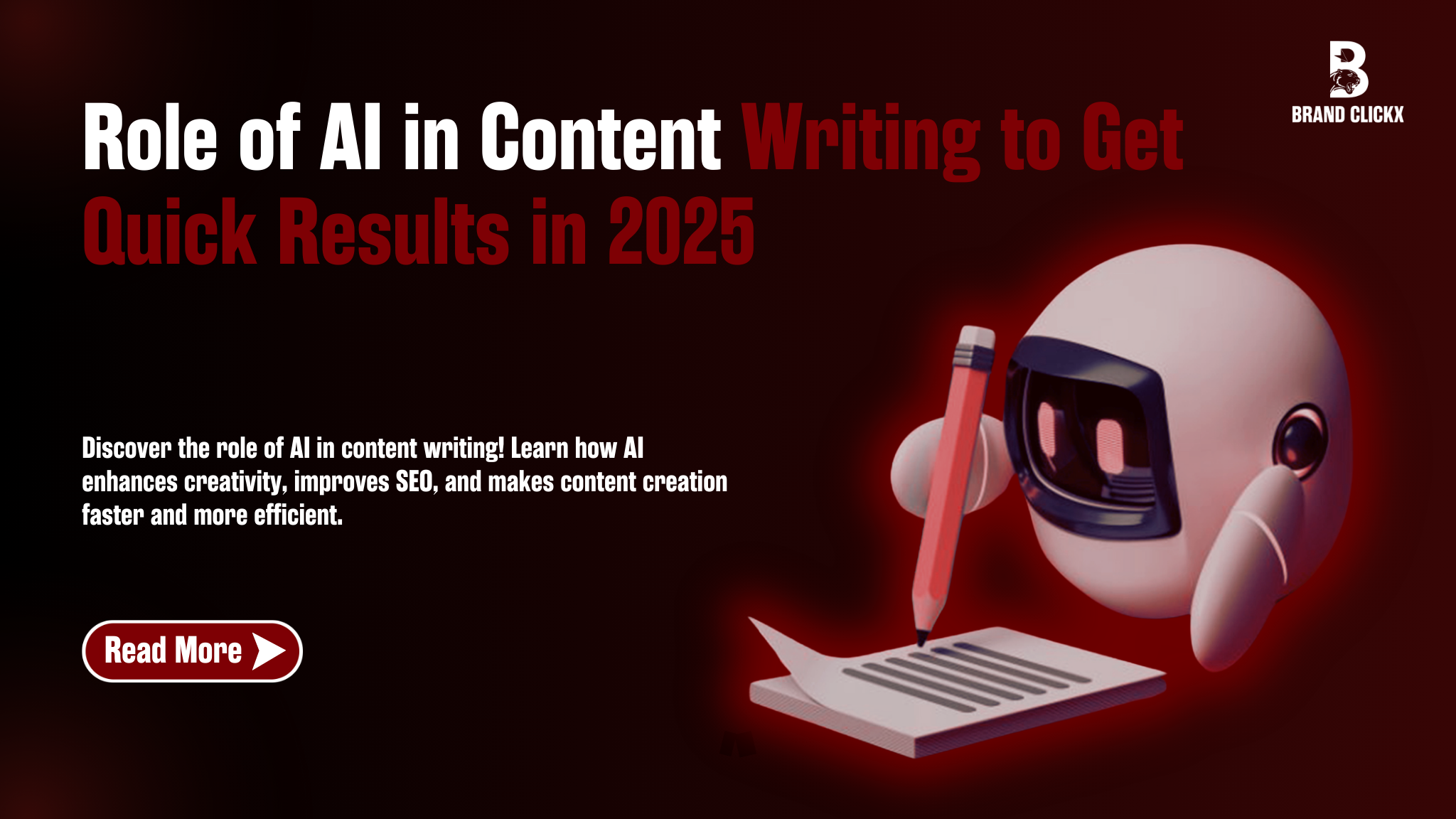Ever stared at a blank page, waiting for the magic to happen? We all have. But what if you had a little help? An idea machine that never runs out of ideas, never gets tired and writes at lightning speed? That’s the role of AI in content writing.
It’s not here to take the job of writers. It’s here to make life easier. From brainstorming headlines to editing grammar, AI is like a creative sidekick. But let’s be real: can a machine ever replace human storytelling, emotions and that spark of originality?
Probably not. But when do humans and AI work together? That’s where the magic happens. Let’s get into how AI is changing the face of content writing!
The Role of AI in Content Generation and Optimization
1. AI in Content Generation
AI has changed the way we create content. Tools like ChatGPT, Google Gemini, DeepSeek, Jasper AI, and Copy.ai generate full articles and blog posts in minutes. They help writers save time and boost productivity.
AI also creates catchy headlines and summaries. Tools like Scalenut, Headline Studio, and Writesonic make content more engaging and SEO-friendly.
Storytelling has improved with AI. It helps structure narratives and suggest creative elements. Sudowrite, Rytr, and DeepAI’s text generator assist in refining stories and making them more compelling.
AI is powerful, but human creativity is still essential. Writers bring originality, emotions, and cultural depth that AI can’t replace.
It means you can’t just give AI a prompt like “Write an article on XYZ” and paste whatever it generates. If you do that, your readers will leave in seconds.
AI-generated content needs a human touch, structure, and refinement. Otherwise, it feels robotic and bland.
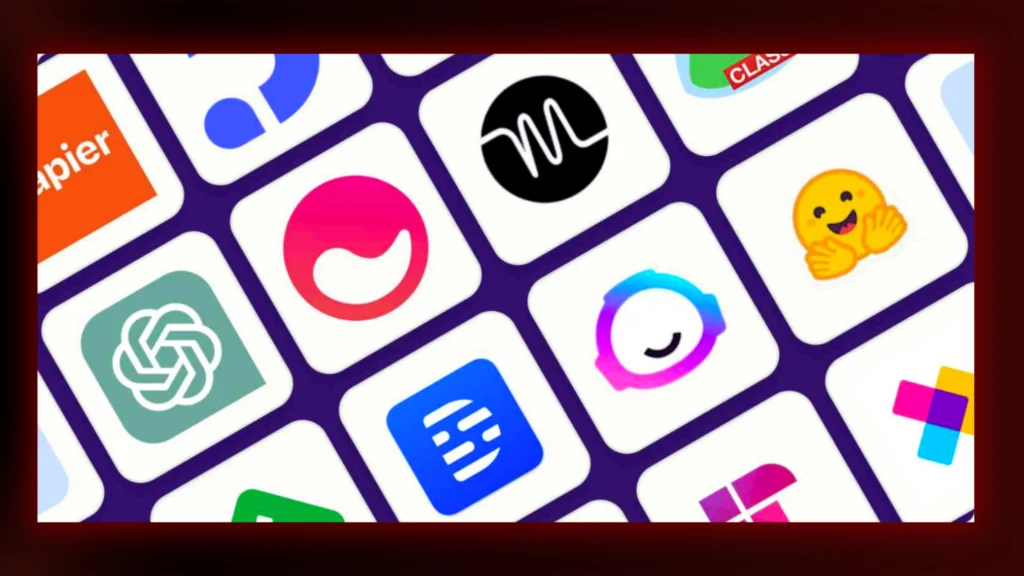
Also Read: AI vs Human Content: What Works Best?
2. Enhancing SEO with AI
Other than content generation, AI plays a big role in SEO. It helps writers and marketers refine strategies, improve rankings, and make optimization smoother.
Keyword Research and Content Structuring
The tools you use for keyword research, like Ahrefs, SEMrush and Ubersuggest, are all powered by AI. They analyze search intent, competitor content and trending queries to give you the best keywords.
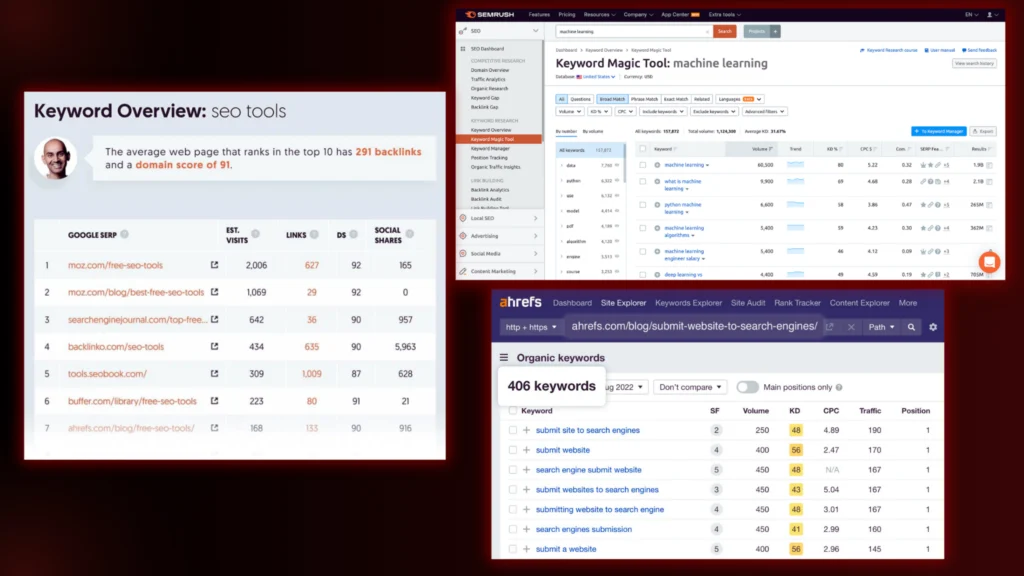
AI also helps with content structuring by giving you the right headings, subtopics and even the ideal word count. No more guessing; you get clear insights to make your content more search-friendly.
Readability and SEO Scoring
Tools SEO isn’t just about keywords. AI tools like Yoast SEO, Grammarly and Hemingway Editor check readability, sentence structure and engagement levels.
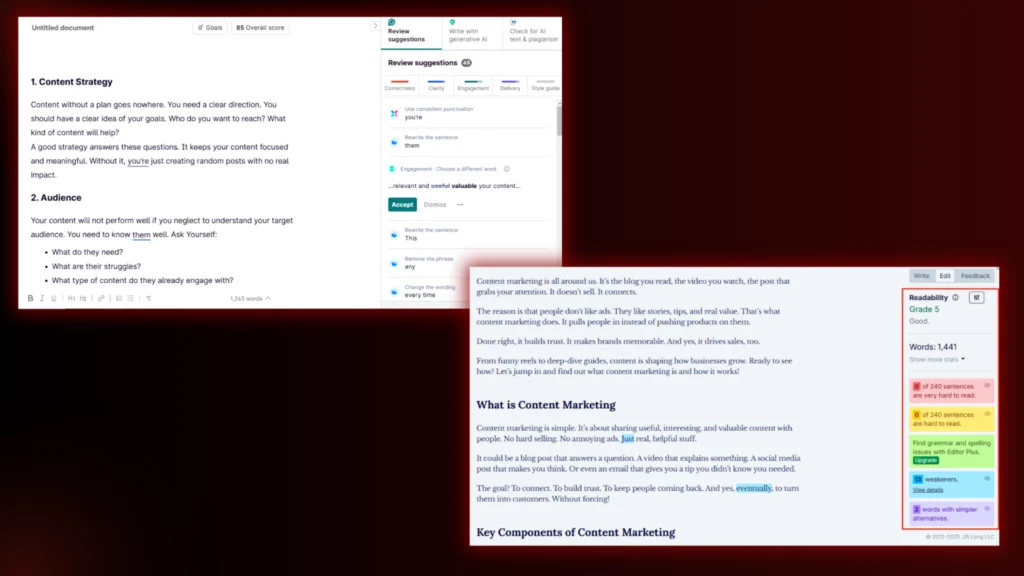
They highlight complex sentences, passive voice and awkward phrasing. Some tools like Surfer SEO and Clearscope even score your content based on factors that help it rank.
AI-Driven Meta Descriptions and Alt Text Generation
Meta descriptions and alt text might seem small, but they matter for SEO. AI tools like Copy.ai, Jasper AI and Scale Not generate meta descriptions that encourage clicks.
They also create alt text for images, making content more accessible and visible on search engines. Instead of spending time crafting these manually, AI does it for you and optimizes and makes them relevant.
AI in SEO isn’t just about automation. It creates content that is well-structured, engaging and more likely to rank.
3. AI in Research, Brainstorming, and Idea Generation
AI also helps in research so much. It would be wrong to say AI has minimized research time to half in fact, it has cut it down even more!
With AI-powered tools, you can scan thousands of sources, find key insights, and gather facts in seconds.
Stuck on ideas? AI is like a brainstorming buddy that never runs out of suggestions. It helps find trending topics, generate creative angles, and structure outlines effortlessly.
But at the end of the day, AI gives ideas, and humans bring creativity. It speeds things up, but real content still comes from you.
4. Plagiarism Detection Tools
AI scans the content to check for originality. It compares text across vast databases to spot duplicate content and ensure authenticity.
Tools like Turnitin, Copyscape, Small SEO Tools, and Grammarly help detect plagiarism, making sure the content remains unique and credible. This helps maintain trust and avoid unintentional plagiarism.
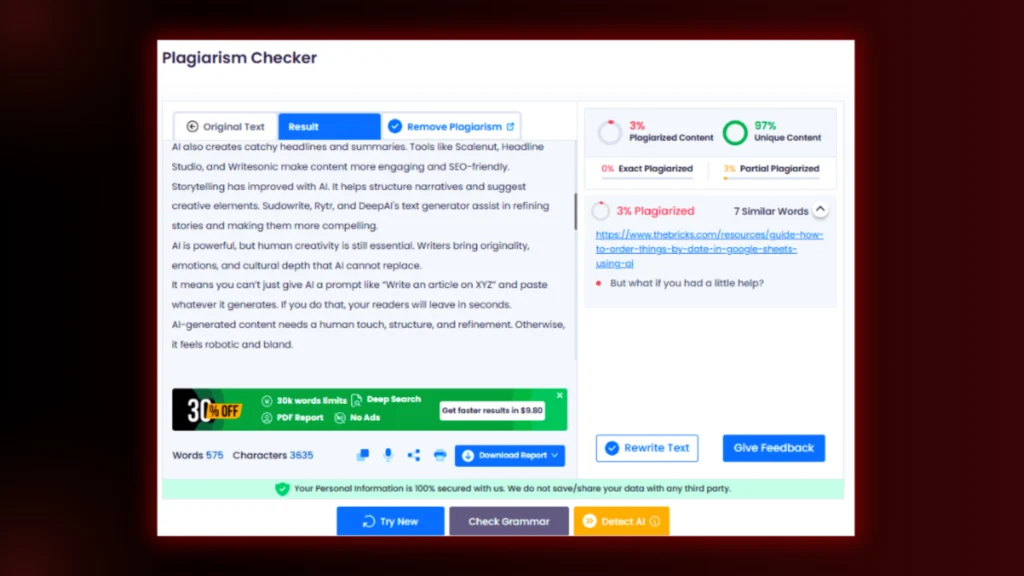
5. AI in Multilingual and Voice-Based Content
AI makes communication across languages easy. It translates text in an instant, so people can understand and share ideas without language barriers. Businesses, educators and content creators use it to reach a broader audience.
It also powers voice assistants like Siri and Google Assistant. They read articles out loud, answer questions and even summarise information. It is perfect for those who prefer listening over reading.
Need subtitles or transcripts? AI does that, too. It listens, converts speech into text and adds captions to videos.
This makes content more accessible to everyone, including those with hearing difficulties. AI is making communication in more languages and formats easier.
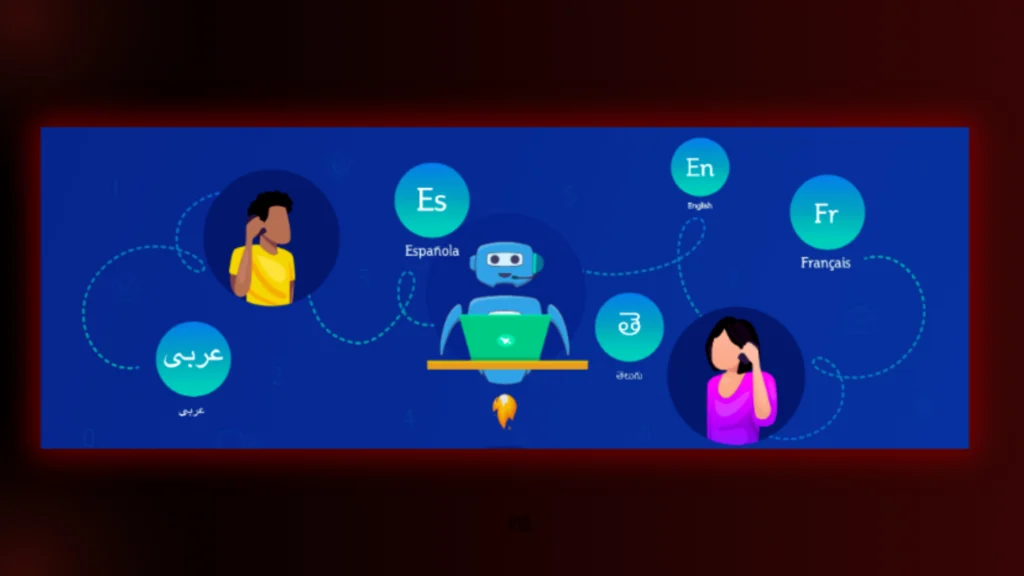
Ethical Concerns of AI
AI isn’t always right. It can spread false information without realizing it. If the data is biased, the content will be too. That’s a problem. Even AI tools admit this. ChatGPT itself says it can make mistakes. That’s important to remember.

Creativity comes from humans. AI just follows patterns. If we depend on it too much, writing loses its heart. Words feel empty. Ideas stop being original.
And who owns AI-generated content? A person? A machine? Is it really “writing” if a machine does it? These are big questions.
But whatever the case, AI should help, not replace, human creativity.
Read More: AI in Web Development: The Future of Design
FAQs
1. How can AI help in content writing?
AI makes writing faster and easier. It generates ideas, drafts content, and even edits. It also improves readability and keeps the tone consistent.
2. What is the role of AI in writing?
AI assists, but it doesn’t replace human creativity. It helps with research, structuring, and editing. It makes writing smoother and more efficient.
3. Does AI-written content affect SEO?
Yes, it does. AI helps with keyword placement, meta descriptions, and readability. But it needs a human touch to stay engaging and rank well.
4. What is the future of AI in content writing?
AI will get smarter. It will help me write more naturally, understand context better, and improve personalization. But human creativity will always be key.
Final Words
AI is fast. It’s smart. It makes writing easier. But let’s be honest: words without human creativity feel empty. AI can help with ideas, SEO, and structure, but it can’t replace real emotion, storytelling, or that special spark only humans bring.
The best content? It’s a mix. AI speeds things up, but humans make it real. That’s what we do at Brand ClickX. We use AI to work smarter, but every piece of content gets a human touch. So, it sounds natural, connects with readers, and actually works.
Need content that feels alive? Let’s do something amazing together. Reach out today!

